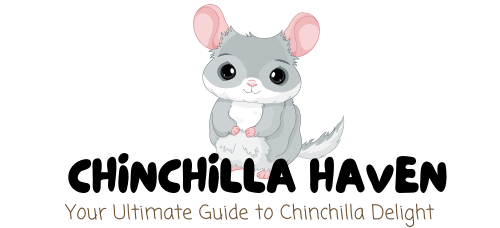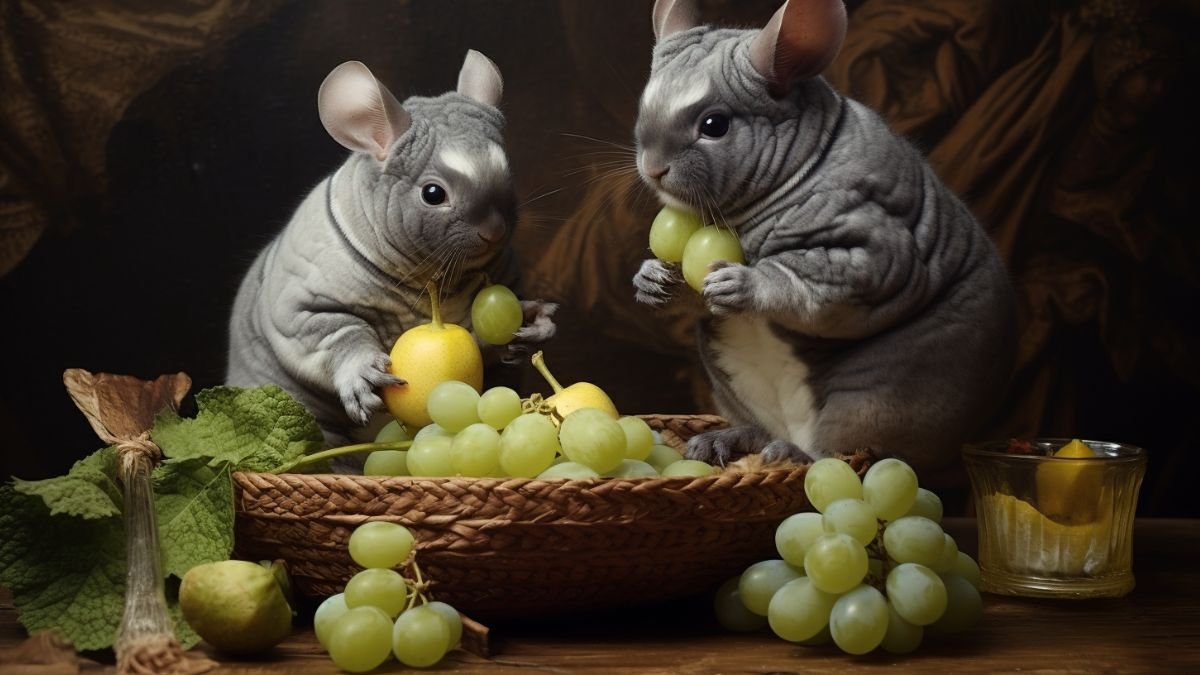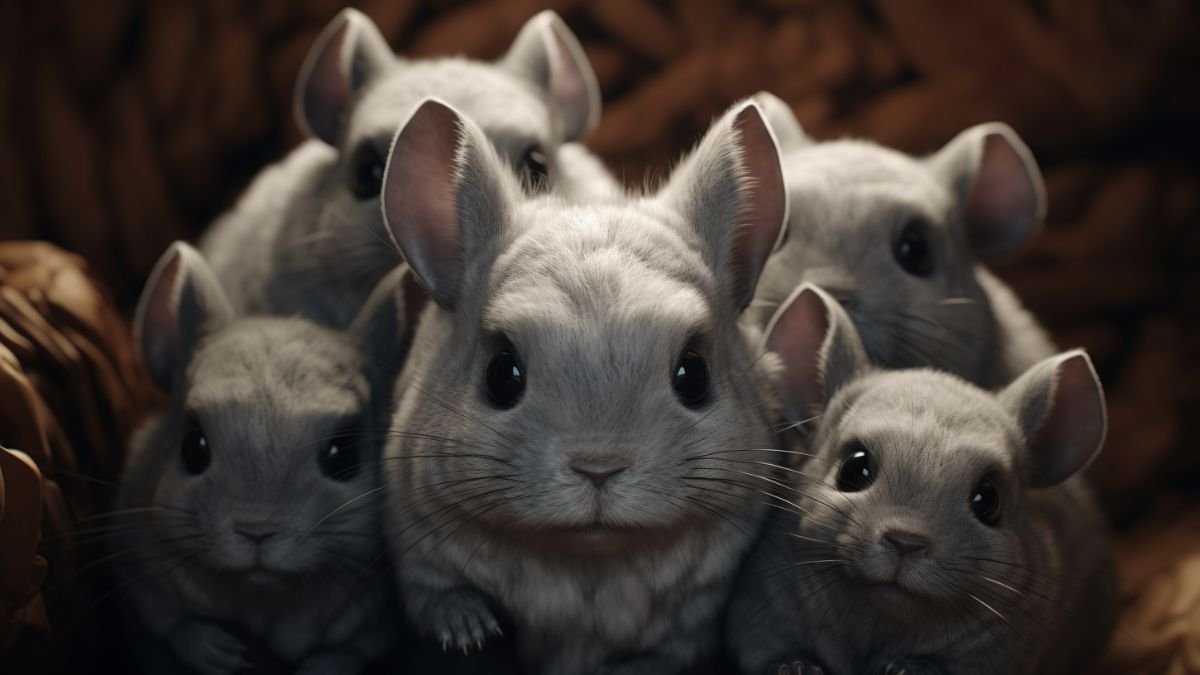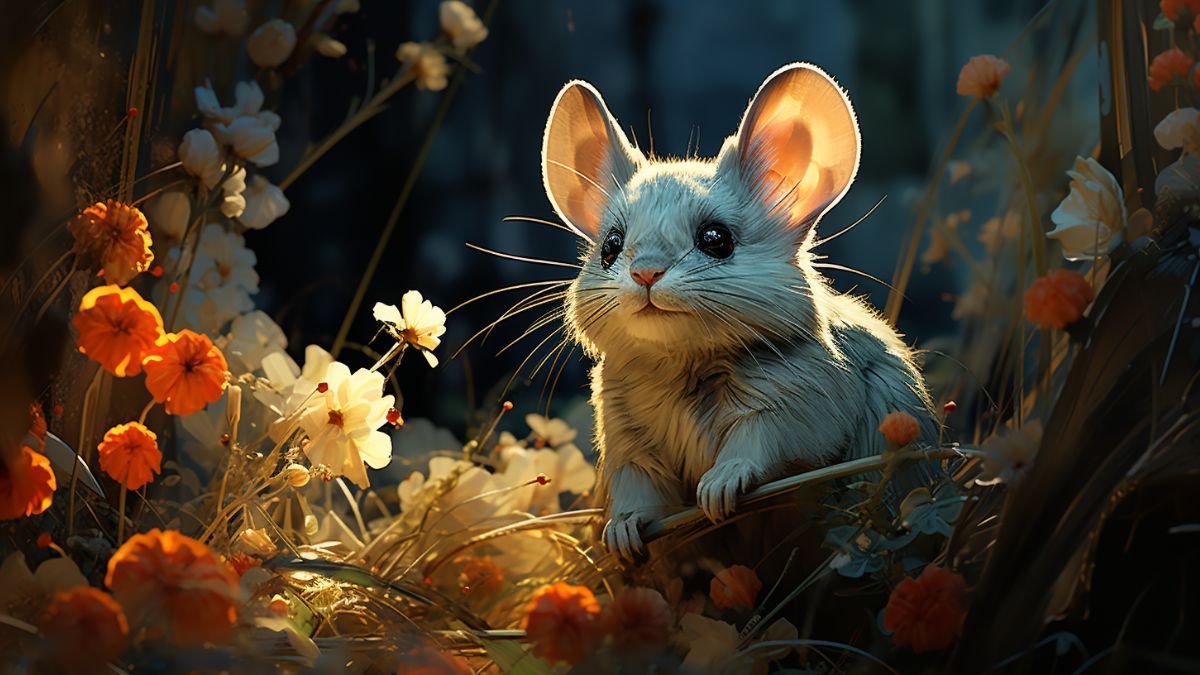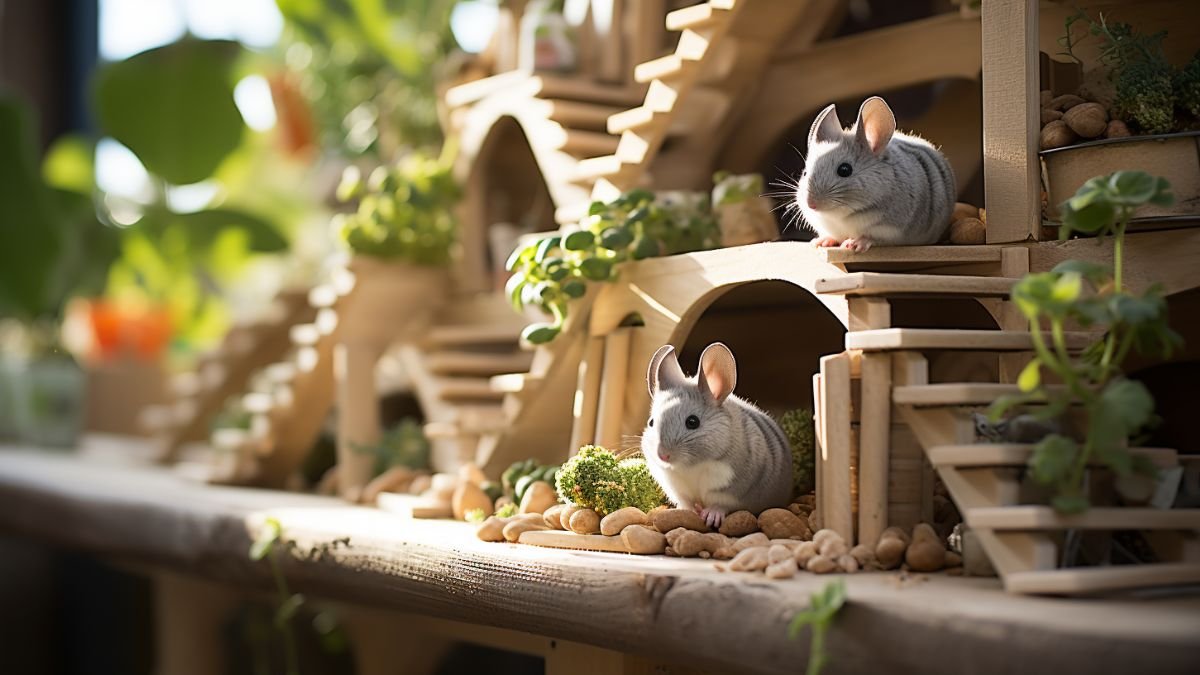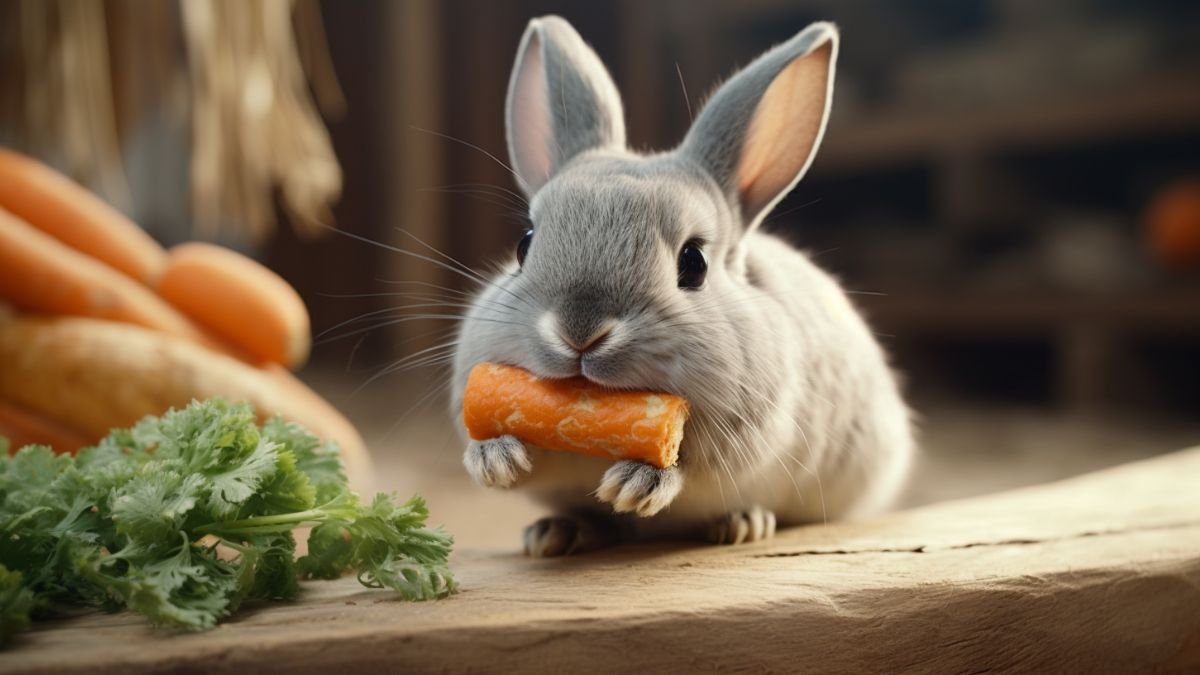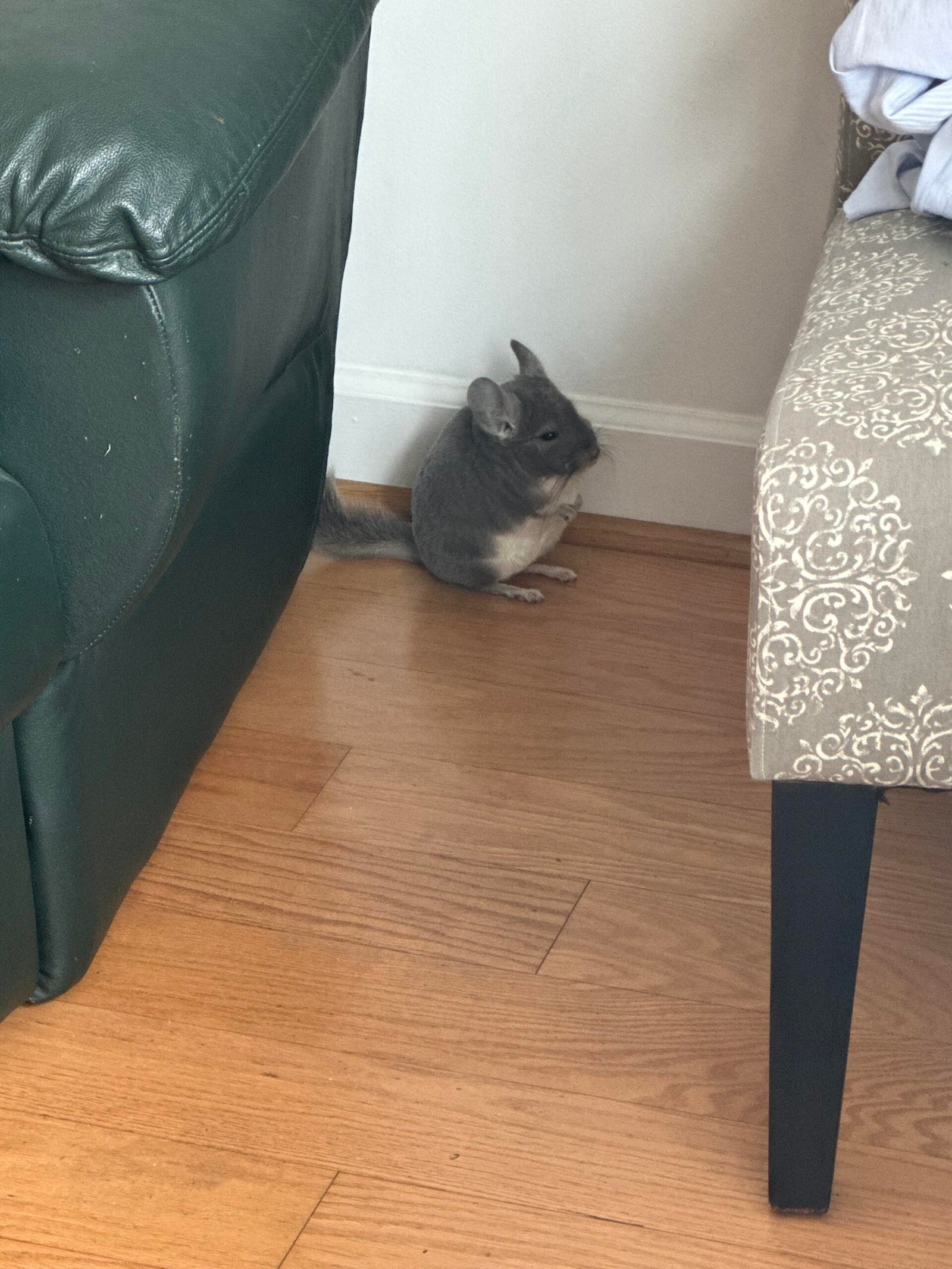
Traveling with your chinchilla can be exciting, but feeding them properly on the go is a challenge you can’t ignore. You want to keep your furry friend healthy and happy, even when routines change.
If you’re unsure how to manage their diet during travel, you’re not alone. This guide will show you simple, effective ways to feed your chinchilla while you’re away from home. Keep reading to discover tips that make travel stress-free for both you and your pet.
Preparing Food Supplies
Preparing food supplies for chinchilla travel is crucial for their health. Carrying the right food helps keep them calm and comfortable. Food routines should stay the same during travel. This reduces stress and prevents stomach problems.
Plan the food amount carefully. Too much or too little can cause issues. Pack fresh hay and pellets. These are the main parts of a chinchilla’s diet. Also, bring some treats for comfort.
Choose Fresh Hay And Pellets
Hay is the most important food for chinchillas. It helps with digestion and teeth health. Choose fresh, green hay that is dust-free. Avoid old or brown hay. Pack enough hay for the whole trip.
Pellets provide necessary nutrients. Pick high-quality pellets made for chinchillas. Avoid pellets with seeds or nuts. Store pellets in a dry, airtight container.
Pack Safe Treats
Treats calm chinchillas during travel. Use small amounts of dried rose hips or plain oats. Avoid sugary or sticky treats. Treats should be healthy and safe.
Use Leak-proof Containers
Food must stay fresh and dry. Use containers that seal tightly. Avoid plastic bags that can tear easily. Containers protect food from moisture and pests.
Prepare Water Supplies
Water is as important as food. Carry a clean bottle or bowl. Change water often to keep it fresh. Avoid spills by using secure lids or bottles.
Choosing Travel-friendly Snacks
Choosing the right snacks for chinchilla travel is very important. Snacks keep them calm and happy during the trip. They also provide energy and prevent hunger. Not all snacks suit travel though. Some can spoil or be messy. Pick snacks that are safe and easy to carry.
Think about snacks that stay fresh without refrigeration. Small, dry treats work best. These snacks should be easy to eat and not cause dust or crumbs. Avoid anything sticky or soft. Such snacks can create a mess inside the travel cage. Cleanliness helps your chinchilla feel comfortable.
Hard, Dry Treats
Hard, dry treats are great for travel. They last long and keep their shape. Examples include dried rose hips or hay cubes. These treats do not spoil quickly. They also help keep chinchilla teeth healthy. Chewing hard snacks wears down their teeth naturally.
Small Portion Sizes
Choose snacks in small pieces. Small bites reduce waste and mess. Your chinchilla can eat them easily. It also prevents overeating during travel. Small snacks fit well in travel containers. This makes feeding simple and stress-free.
Natural Ingredients Only
Pick snacks with no added sugar or preservatives. Natural snacks are safer and healthier. Chinchillas have sensitive stomachs. Artificial ingredients can cause digestive issues. Stick to snacks made from herbs, flowers, or hay.
Easy To Store Packaging
Use snacks that come in resealable bags or containers. This keeps snacks fresh and clean. Portable packaging fits well in travel bags. It also prevents spills during the trip. Good packaging keeps your chinchilla’s food safe.
Maintaining Hydration
Keeping chinchillas hydrated during travel is very important. Water helps their body work well. Without enough water, chinchillas can get sick quickly. Travel can make it hard for them to drink enough. You must make sure they have water all the time.
Provide Fresh Water Regularly
Bring a clean water bottle or bowl for your chinchilla. Change the water often to keep it fresh. Dirty water can make your pet sick. Check the water several times a day. Make sure your chinchilla drinks enough during the trip.
Use A Leak-proof Water Bottle
Choose a water bottle that does not leak. Spills can make a mess and waste water. A good bottle also keeps water clean. Attach the bottle firmly to the cage or carrier. This way, your chinchilla can drink anytime.
Offer Water Before And After Travel
Give your chinchilla water before you start traveling. Let them drink plenty to stay hydrated. After arriving, offer water again quickly. Travel can make pets thirsty and tired. Fresh water helps them feel better fast.
Monitor Your Chinchilla’s Water Intake
Watch how much water your chinchilla drinks. Less drinking could mean stress or illness. If your pet drinks too little, try to encourage more. Offer water in different ways or change the bottle. Always keep water available and easy to reach.

Feeding Schedule On The Go
Keeping a chinchilla’s feeding schedule steady during travel is very important. Their stomachs are sensitive and need regular food times. Changes can upset their digestion and mood.
Planning food times helps your chinchilla feel safe and calm. It also keeps their energy up during the trip. Sticking to a routine can reduce stress for both you and your pet.
Maintain Regular Feeding Times
Try to feed your chinchilla at the same times as at home. Use a watch or alarm to remind you. This helps your pet feel normal and secure.
Do not skip meals or delay feeding. Chinchillas need constant food for good health.
Prepare Portable Food Containers
Use small containers to carry hay and pellets. Choose spill-proof boxes for easy travel. This keeps food fresh and clean.
Label containers to avoid confusion during travel stops. Keep them within reach for quick feeding breaks.
Offer Water Regularly
Fresh water is just as important as food. Bring a travel water bottle designed for small pets. Check and refill water often.
Dehydration can happen quickly, especially in warm vehicles. Always watch your chinchilla’s water intake.
Feed Small Portions Often
Give small amounts of food more frequently. This eases digestion and prevents bloating. It also reduces mess inside the travel cage.
Divide daily food into several small meals. This mimics their natural feeding habits.
Safe Containers For Food Storage
Choosing the right containers for chinchilla food during travel is very important. Safe containers keep the food fresh and stop spills. They also protect the food from dirt and bugs. Using good containers helps maintain your chinchilla’s health on the trip.
Food containers must be easy to open and close. They should fit well in your travel bag. Light containers make carrying easier. Clear containers help you see the food level without opening them.
Plastic Containers With Tight Lids
Plastic containers with tight lids prevent food from spilling. They keep moisture out and keep food dry. Choose BPA-free plastic to avoid harmful chemicals. These containers are lightweight and easy to carry.
Glass Jars With Secure Caps
Glass jars are safe and do not absorb smells. Their secure caps keep food fresh for long hours. Glass is heavier but very durable. Perfect for dry foods like pellets and hay.
Silicone Food Storage Bags
Silicone bags are flexible and reusable. They seal tightly to keep food fresh. These bags are lightweight and easy to pack. Good for carrying small amounts of treats or pellets.
Metal Containers With Locking Mechanisms
Metal containers protect food from crushing. Locking lids keep food safe from pests. They are strong and long-lasting. Ideal for rough travel conditions and outdoor trips.
Avoiding Harmful Foods
Feeding chinchillas during travel requires extra care. Avoiding harmful foods is key to keeping them safe and healthy. Chinchillas have sensitive digestive systems. Certain foods can cause serious problems, such as diarrhea or poisoning. Knowing which foods to avoid helps prevent health issues and stress for your pet.
Foods High In Sugar And Fat
Sugary and fatty foods can upset a chinchilla’s stomach. Avoid treats like chocolate, nuts, and seeds. These items can cause digestive trouble and weight gain. Stick to their regular diet to keep digestion stable during travel.
Fresh Fruits And Vegetables
Fresh fruits and vegetables often contain too much moisture for chinchillas. These can lead to diarrhea and dehydration. Avoid giving fresh produce while traveling. Instead, offer their usual dry pellets and hay.
Human Snacks And Junk Food
Human snacks like chips, candy, and processed foods are harmful. These contain salt, preservatives, and chemicals that chinchillas cannot digest. Keep your pet away from all human junk food to ensure safety.
Toxic Plants And Herbs
Many plants and herbs are toxic to chinchillas. Avoid feeding any unknown or wild plants. Stick to safe, vet-approved herbs if needed. This prevents accidental poisoning during your trip.
Handling Feeding During Delays
Travel plans do not always go as expected. Delays can happen at any time. These delays can make feeding your chinchilla tricky. Proper care is key to keeping your pet calm and healthy during these times. Knowing how to handle feeding during delays helps avoid stress and health problems for your chinchilla.
Keep Extra Food And Water Ready
Always pack extra chinchilla food before travel. Include pellets, hay, and treats your pet likes. Also carry fresh water in a secure bottle. Having backup food stops hunger during unexpected delays. It keeps your chinchilla comfortable and less anxious.
Feed Small Amounts Often
Offer small portions of food during delays. Small meals are easier on your chinchilla’s stomach. Frequent feeding mimics their natural eating habits. It helps maintain steady energy levels and reduces stress.
Maintain A Calm Environment
Keep your chinchilla’s travel space quiet and calm. Avoid loud noises or sudden movements. A calm environment helps chinchillas feel safe. Stress can reduce their appetite, so stay relaxed.
Monitor Your Chinchilla’s Behavior
Watch for signs of hunger or distress. If your pet seems restless or weak, offer food and water. Early feeding prevents health issues. Check on your chinchilla often during long delays.
Monitoring Chinchilla’s Eating Habits
Monitoring your chinchilla’s eating habits during travel is very important. Travel can stress chinchillas and affect their appetite. Careful observation helps spot problems early. This keeps your pet healthy and happy on the trip.
Watch how much your chinchilla eats each day. Note any changes in eating patterns. A drop in food intake may show stress or illness. Offer familiar foods to encourage eating. Check that your chinchilla chews pellets and hay well.
Track Food And Water Intake
Keep a daily record of food and water consumed. Measure portions before and after feeding. This shows if your chinchilla is eating enough. Water is just as important as food. Make sure fresh water is always available.
Observe Signs Of Stress Or Illness
Look for signs like drooling or not eating. A chinchilla that stops eating needs quick attention. Stress can cause digestive problems. Watch for changes in poop size or shape. These may indicate health issues.
Maintain A Consistent Feeding Schedule
Feed your chinchilla at the same times each day. Routine helps reduce travel stress. Avoid sudden changes in diet during the trip. Use the same food brand and type as at home. This keeps your pet comfortable and eating well.
Post-travel Diet Adjustment
After traveling, chinchillas need a gentle return to their regular diet. Gradually reintroduce fresh hay and pellets to avoid stomach upset. Keep water available and watch for any changes in eating habits.
Understanding Your Chinchilla’s Needs After Travel
Travel can stress chinchillas and upset their digestion. Their eating habits may change. Adjusting their diet slowly helps them recover. Give them familiar foods first. This keeps their stomach calm and happy.
Offer small amounts of fresh hay and pellets. Avoid sudden changes in food type or quantity. Keep fresh water available at all times. Watch your chinchilla for signs of discomfort or illness.
Reintroducing Regular Food Gradually
Start with the usual pellets and hay your chinchilla eats. Add new or different foods slowly over several days. This prevents stomach upset or diarrhea. Monitor your pet’s reaction to each food change.
Limit treats until your chinchilla’s appetite returns fully. Focus on balanced nutrition to restore energy. Patience is important during this phase.
Signs To Watch After Changing Diet
Check for normal droppings and eating behavior. A healthy chinchilla will be active and alert. Look for any signs of diarrhea or loss of appetite. Contact a vet if problems last more than two days.
Keep the environment calm and quiet. Stress can delay recovery. A smooth diet transition helps your chinchilla feel safe and strong again.
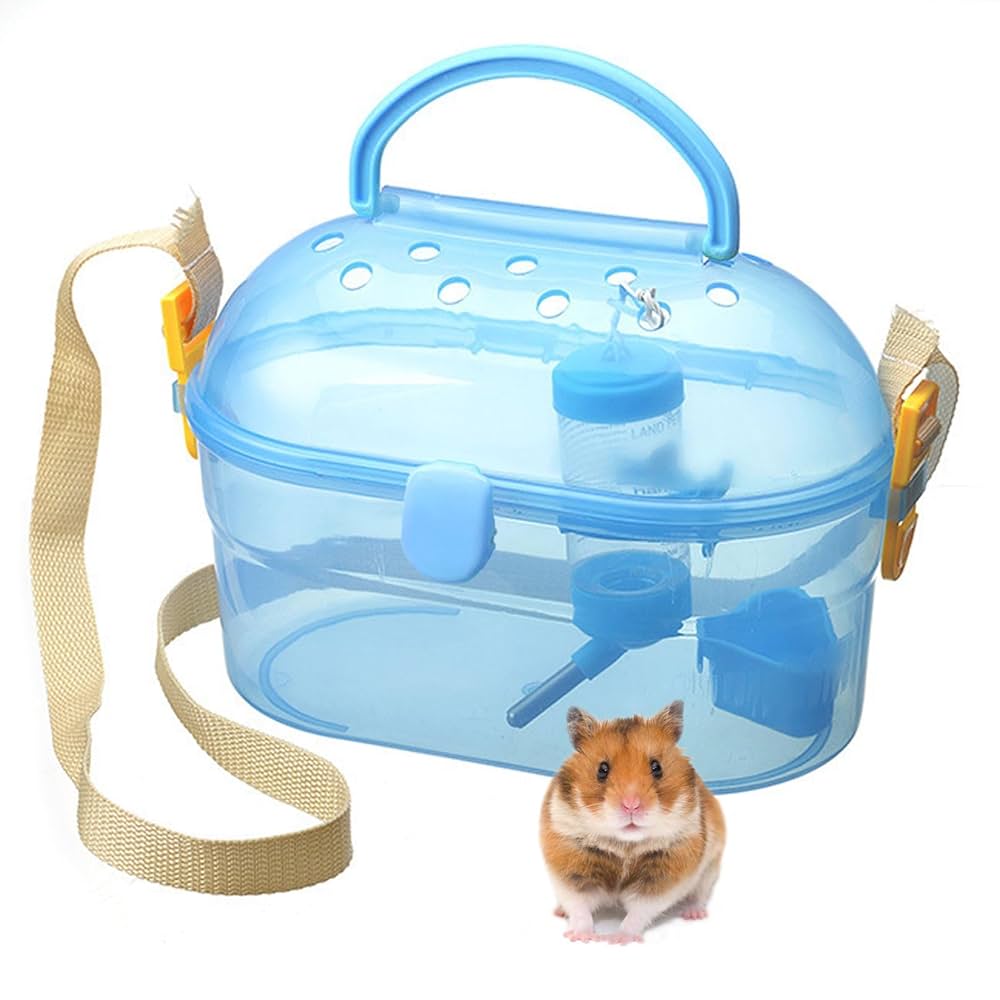

Frequently Asked Questions
What Foods Are Safe To Feed Chinchillas During Travel?
Offer dry hay and small amounts of their regular pellets. Avoid fresh fruits or veggies.
How Often Should Chinchillas Eat While Traveling?
Feed them twice a day in small portions to prevent digestive issues.
Can Chinchillas Drink Water On The Road?
Yes, provide fresh water in a secure bottle frequently to keep them hydrated.
What Type Of Container Is Best For Chinchilla Food?
Use airtight, spill-proof containers to keep food fresh and prevent messes.
Should I Change My Chinchilla’s Diet During Travel?
Stick to their usual diet to avoid stress and digestive problems.
How Do I Keep Chinchilla Food Fresh During Trips?
Store food in cool, dry places inside sealed containers to maintain freshness.
Can Treats Be Given To Chinchillas While Traveling?
Limit treats to avoid upset stomachs; small pieces of dried herbs are okay.
What Signs Show My Chinchilla Isn’t Eating Well On Travel?
Look for refusal to eat, drooling, or lethargy; these need quick attention.
Conclusion
Feeding chinchillas during travel needs care and planning. Keep their diet consistent to avoid stress and health issues. Offer familiar pellets and fresh water regularly. Avoid giving treats that may upset their stomach. Pack their food in easy-to-reach containers. Watch for signs of hunger or discomfort.
A calm environment helps them eat well on the move. Small steps make travel easier for your chinchilla. Safe feeding habits protect their health and happiness. Travel can be smooth with simple, thoughtful feeding routines.
